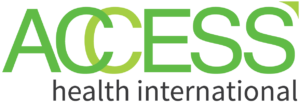
| Whitepaper: https://fintechforhealth.sg/wp-content/uploads/2021/04/Fintech-for-Health_Breaking-the-health-poverty-trap-How-fintech-can-improve-access-to-healthcare-in-Asia.pdf
Every year, one-third of all new cases of poverty in Southeast Asia are due to healthcare costs. In South Asia alone, 64.8% of the total health expenditure is attributed to out-of-pocket healthcare payments. While Universal Health Coverage is the ideal state of paying for and guaranteeing care, it is not feasible for many countries in the short-term. Financial services has been playing an increasingly bigger role in addressing out-of-pocket costs through innovative business models and new technologies that eliminate inefficiencies and improve access to high-quality healthcare. Since Fintech for Health was first conceptualized in 2017, ACCESS Health International has been bringing together the right people to address these issues. We are active in six different countries in Asia and have brokered countless conversations and partnerships geared towards addressing the healthcare financing challenges low- and middle-income populations face. In our first Fintech for Health publication with MetLife Foundation, we share three key takeaways on why Fintech for Health is urgently needed to address the healthcare financing challenges in Asia: Health financing must be patient-centred: To create effective and realistic financial solutions, we need first to understand patients’ financial decision-making regarding accessing healthcare, which is based on known and unknown indirect costs of care, and the ability – and willingness – to access trusted and transparent financing. This is a call to bring sectors together: The development goals of Universal Health Coverage and universal financial access are essentially the same – to ensure that people are financially sound while pursuing both a better quality of life and health. The financial services sector has a direct and important role to play in creating financial solutions for healthcare. The best solutions will be bundled, integrated, and comprehensive: Fintech can be used to deliver three types of solutions: information, healthcare services, and financing (i.e. financing products and services). Patients’ needs rarely fall into just one category. To be patient-centred, solutions providers must consider the totality of patient needs and preferences, partnering when necessary and delivering accordingly, so that patients have what we all deserve: options. Keynote speakers: Panelists: |


